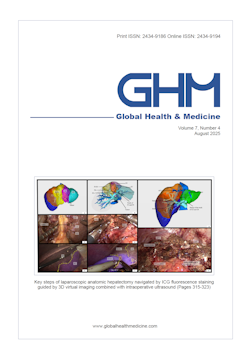Global Health & Medicine 2020;2(3):156-163.
Present status and perspective of chemotherapy for patients with unresectable advanced or metastatic gastric cancer in Japan
Yamada Y
Patients with unresectable advanced or recurrent gastric cancer have a poor prognosis with overall survival times increasing by only a few months after anti-cancer drug therapy in the last four decades. The survival times from previous clinical trials for untreated metastatic gastric cancer in Japan are generally better than those reported from trials in European and North or South American countries. Therefore, the proportion of Japanese patients enrolled in recent global trials of novel anti-cancer drugs should be increased in order to identify drugs that specifically prolong the survival of such patients. S-1 plus oxaliplatin (SOX) therapy is the most commonly used standard first-line treatment for advanced gastric cancer in Japan. SOX induces mild nausea and vomiting, even in elderly patients, that can be treated by maintaining oral intake with adequate anti-emetic treatment usually given in an outpatient clinic. Neutropenia, nausea, and vomiting in SOX therapy were more frequently observed in female patients compared with males. Intensive toxic chemotherapy such as triplet therapy never prolonged overall survival or maintained a favorable quality of life. The current strategies used against metastatic gastric cancer need to be modified in regard to innovative treatments with current drugs, keeping in mind each categorized treatment population. In a real world of a diverse society even if the same treatment is performed, the outcome of the individual patient is different. It is important for each society to implement established treatment, knowing that the evidence from global trials aimed at drug approval does not necessarily show external validity.
DOI: 10.35772/ghm.2019.01025







